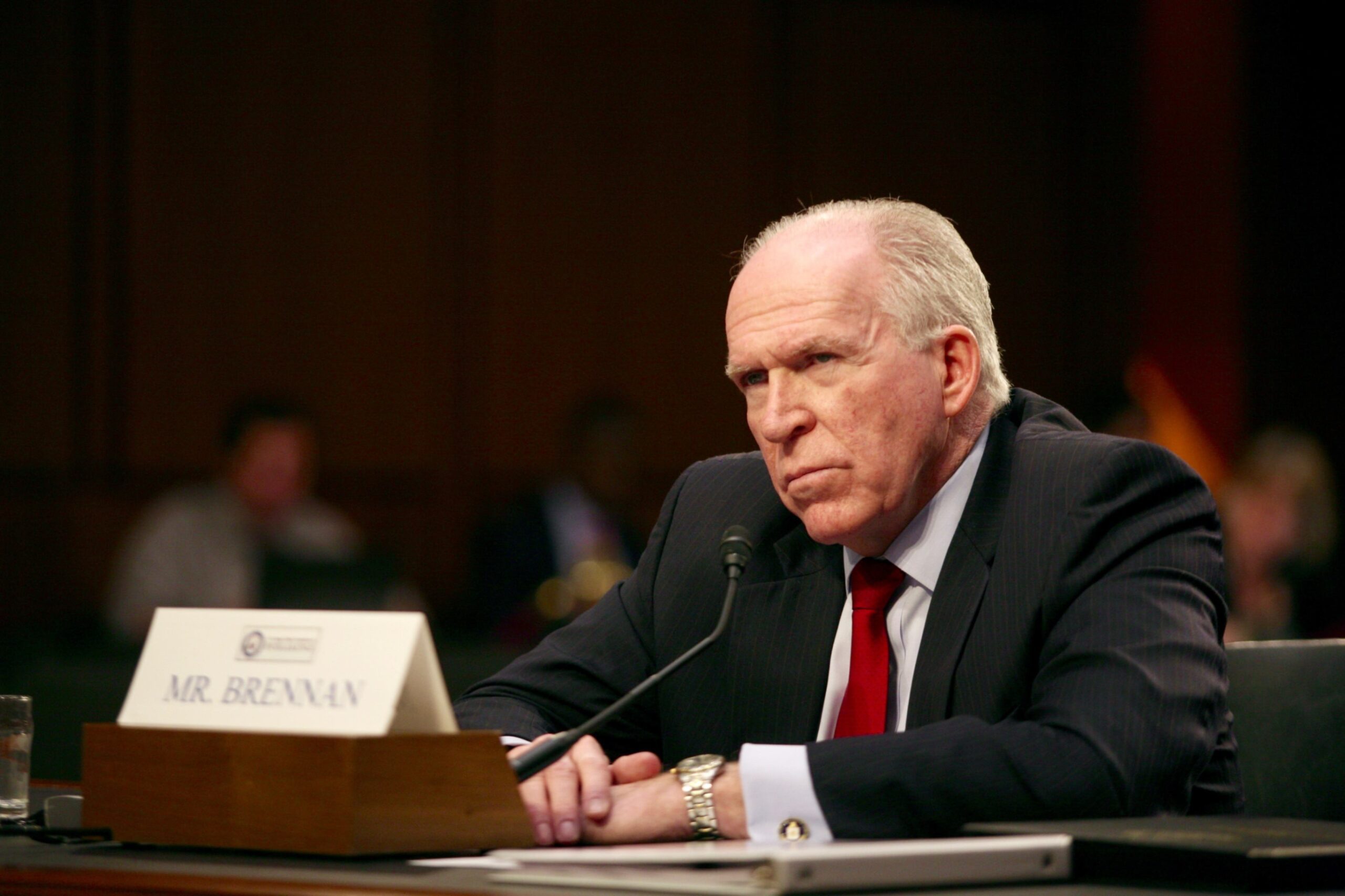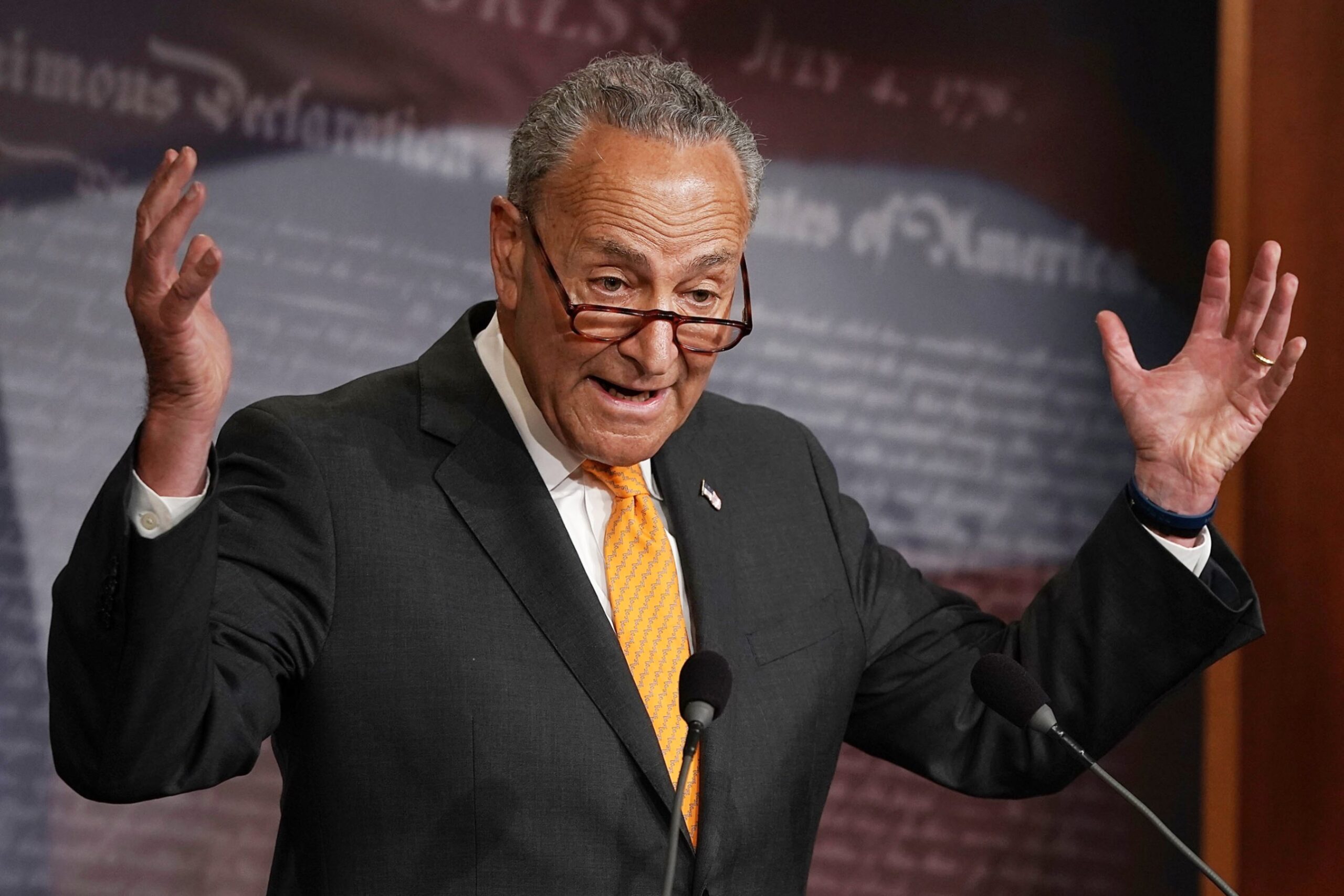In an unexpected turn of events, Senate Majority Leader Chuck Schumer has publicly accused former CIA Director John Brennan and former FBI Director James Comey of potential wrongdoing—marking one of the most dramatic political escalations in recent months. During a press briefing that left reporters stunned, Schumer did not mince words as he issued grave warnings about the consequences of unchecked intelligence power and the long-term influence of what he referred to as the “deep state.”

This shocking development comes amid growing scrutiny over past intelligence operations, secret surveillance authorizations, and previously classified communications now being reviewed by Senate oversight committees. Schumer, long known as a cautious operator within the Democratic Party, took an uncharacteristically hard stance on what he labeled “dangerous behavior veiled in national security rhetoric.”
“This isn’t about partisan politics,” Schumer said. “This is about transparency, accountability, and the future integrity of our democratic institutions.”
According to sources close to the Senator, internal memos and whistleblower testimonies have emerged pointing to alleged overreach during Brennan and Comey’s tenures—particularly surrounding the use of FISA warrants, surveillance of American citizens, and what Schumer described as “shadow operations” without proper oversight.
While Schumer stopped short of calling for criminal charges, he emphasized the need for a full investigation, warning that the United States is “walking a dangerous path” if top intelligence officials are allowed to operate without boundaries.

“We have allowed unelected intelligence chiefs to influence political outcomes, both foreign and domestic,” Schumer declared. “That must end now.”
The remarks sent shockwaves through Washington, prompting immediate responses from both Brennan and Comey. In a statement posted to X (formerly Twitter), Brennan dismissed the allegations as “reckless and baseless,” accusing Schumer of playing into conspiracy theories that weaken U.S. intelligence operations. James Comey also fired back, stating, “Any suggestion that I acted improperly during my time as Director is simply false and politically motivated.”
However, Schumer appears undeterred. He confirmed plans to push for a bipartisan hearing into historical intelligence abuses and advocate for stricter legislative guardrails on surveillance powers.
This turn of events has left both Democrats and Republicans divided. Some conservatives praised Schumer’s boldness, arguing that it legitimizes long-standing concerns about abuse of power within federal agencies. Others, including progressive Democrats, worry the move could be exploited to undermine the work of institutions that, despite their flaws, serve as critical national defense mechanisms.
Interestingly, Schumer’s stance echoes remarks he made back in 2017, when he warned then-President Trump that criticizing the intelligence community was dangerous because, as he put it, “They have six ways from Sunday of getting back at you.” At the time, the statement was widely interpreted as a defense of the intelligence apparatus. Today, it may signal a dramatic change of heart—or a deeper understanding of the risks posed by unaccountable power centers.
Analysts speculate that Schumer’s sharp pivot could be driven by newly surfaced information or pressure from within the Senate Intelligence Committee. Regardless, the timing is significant. With the 2024 election cycle heating up and widespread public skepticism about government transparency, Schumer’s move could reshape the political battlefield.

“This could be a moment of reckoning,” says political analyst Marissa Grant. “If Senator Schumer follows through with hearings and produces hard evidence, it will not only change how Americans view their intelligence agencies, but also how we define accountability at the highest levels of government.”
As of now, no formal investigation has been announced by the Department of Justice. But with growing bipartisan interest and mounting public pressure, that may change soon.
One thing is clear: this controversy has just begun. And if Schumer’s warnings are any indication, the road ahead could be turbulent—not only for Brennan and Comey but for the entire intelligence establishment.

